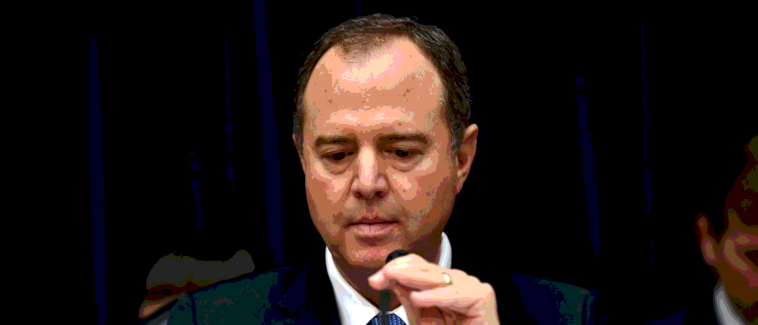Intelligence Community Inspector General Michael Atkinson told the House Intelligence Committee on Friday that a CIA whistleblower did not disclose contact with Chairman Adam Schiff’s office before filing a complaint against President Donald Trump, a source familiar with the watchdog’s testimony told The Daily Caller News Foundation.
Fox News’ Catherine Herridge first reported that Atkinson said that the whistleblower did not disclose having contact with Schiff’s office, and so he did not investigate the matter.
Texas Rep. John Ratcliffe, a Republican on the Intelligence panel, appeared to confirm that Atkinson said he had no knowledge of whistleblower contacts with Schiff’s team.
On Wednesday, Schiff’s office acknowledged that the whistleblower reached out to an aide on the House Intelligence Committee regarding concerns that were later put in the complaint.
The aide directed the whistleblower to the ICIG and briefed Schiff on what the whistleblower would allege. The whistleblower filed the complaint on Aug. 12.
That series of events conflicted with Schiff’s public statements leading up to the release of the complaint last week. Schiff implied in interviews that he did not know what was in the complaint, and he said he was glad that the ICIG had referred the complaint to his committee because he might not have known about it otherwise.
On Sept. 17, Schiff said that “we have not spoken directly with the whistleblower.”
A Washington Post fact-checker gave Schiff four Pinocchios for his statement.
It is unclear what the failure to disclose contacts with Schiff’s office means for the whistleblower. Atkinson deemed the complaint “urgent” and “credible” after investigating the complaint for two weeks.
The ICIG asks potential whistleblowers to disclose, under penalty of perjury, whether they filed their complaint with other inspectors general or members of Congress and to disclose any of those contacts.
It is possible that the whistleblower could avoid disclosing the contact with Schiff’s office if he did not file a formal complaint, though the language on the IC IG’s whistleblower forms is not explicit on the matter.
The IC IG did not immediately respond to a request for comment. An attorney for the whistleblower also did not reply.
Trump and his allies have said that the handling of the complaint shows that the whistleblower was coordinating with Democrats to file a politically-motivated complaint.
The whistleblower’s defenders have said allegations about the process of handling the complaint is a distraction from what is in the document.
The complaint focused mainly on a July 25 phone call that Trump had with Ukrainian President Volodymyr Zelensky.
The whistleblower, who has not been identified, relayed information he picked up from White House and administration officials who were allegedly concerned about Trump’s remarks to Zelensky in the phone call.
The complaint has some inaccuracies that have been revealed as more information trickles out about White House and State Department actions. But the whistleblower provided a generally accurate outline of the phone call and White House officials’ activities.
What remains up for debate is whether the whistleblower accurately assessed Trump’s intentions related to Zelensky. The whistleblower alleged that Trump dangled foreign aid and a White House visit over Zelensky’s head in exchange for opening investigations into Joe Biden and Ukrainian meddling in the 2016 election.
A transcript of the phone call shows that Trump brought up U.S. aid to Ukraine and that he discussed Biden with Zelensky. Trump did ask Zelensky to open up the investigations, but there is no explicit quid pro quo in the phone call transcript.
Trump has denied pressuring Zelensky to open the investigations. Zelensky has also said he did not feel pressure during the call.
Text messages released Thursday show U.S. diplomats discussing Trump’s wish that Zelensky open investigations as a precondition to the Ukrainian leader visiting the White House.



